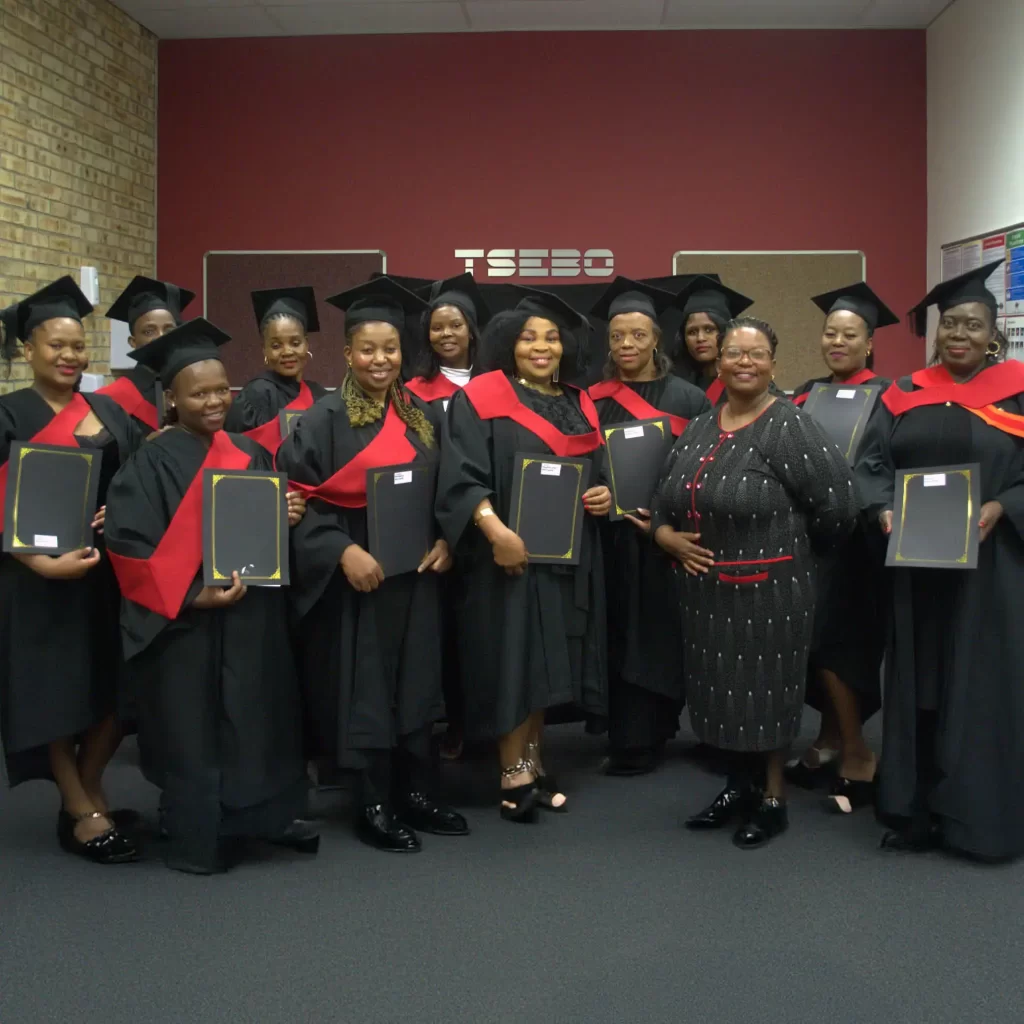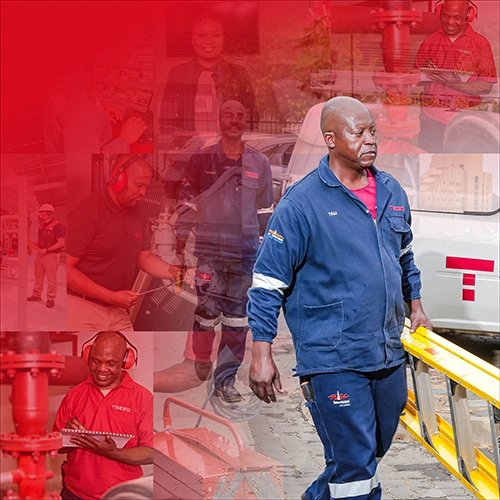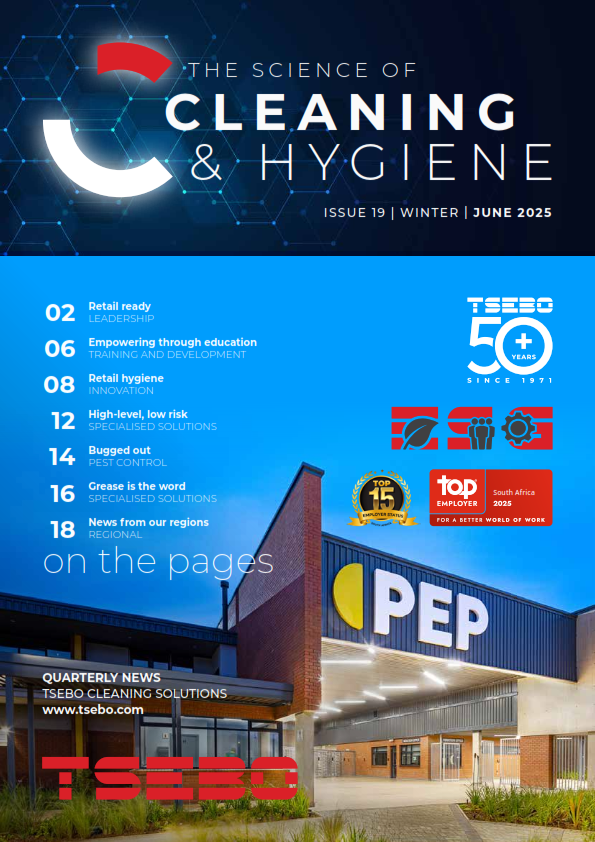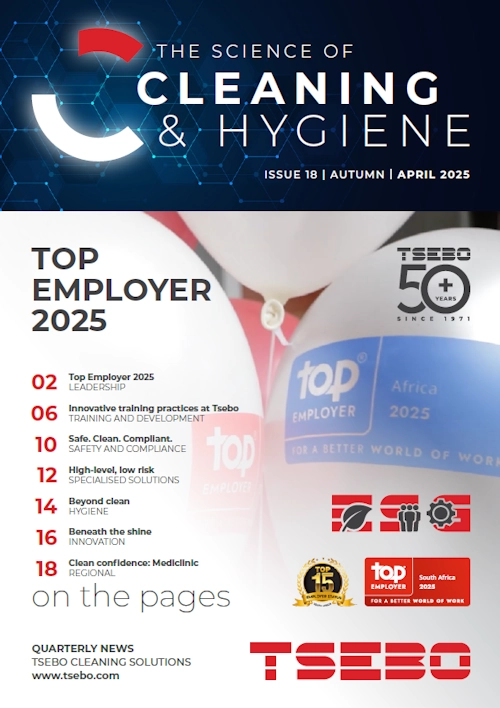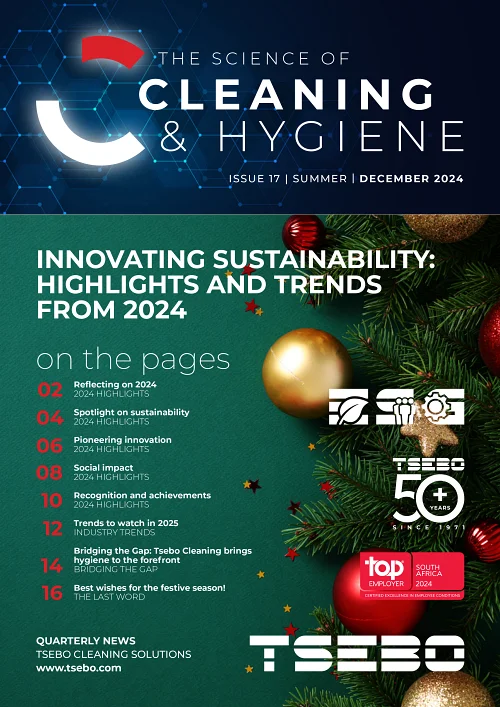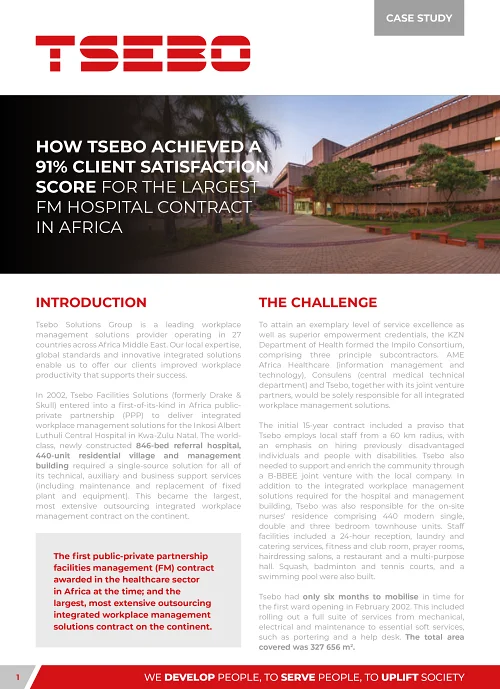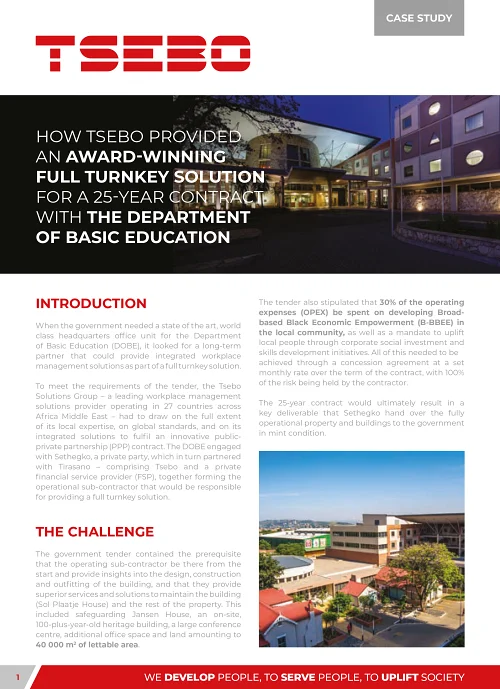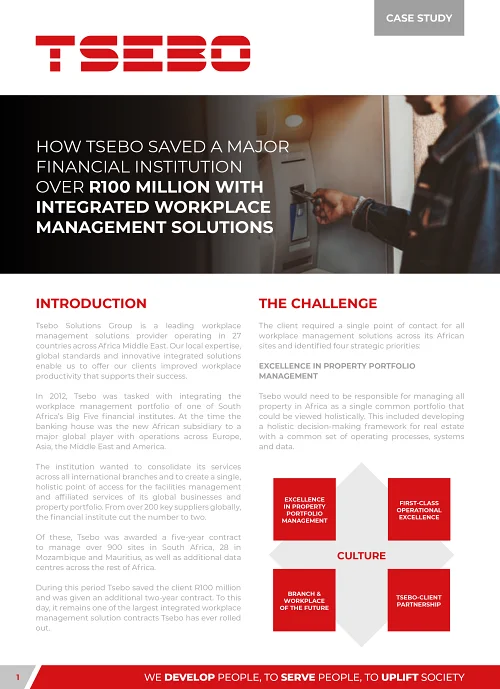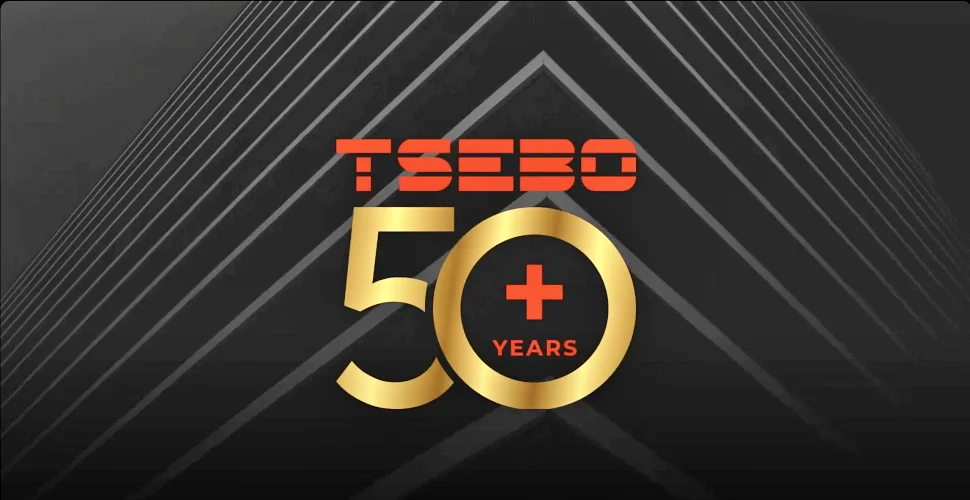NEWS AND INSIGHTS
Welcome to Tsebo Solutions Group’s News and Insights page - your central hub for updates, thought leadership and success stories that highlight our commitment to workplace and service excellence.
Stay informed with expert insights, innovative solutions and stories that showcase how we shape environments where people and organisations thrive.
ANNOUNCEMENTS
Discover the latest press releases and company news. From groundbreaking initiatives to impactful achievements and strategic partnerships, explore how Tsebo is driving change and leading with purpose.
Discover Our Winter Edition: The Science of Cleaning & Hygiene – June 2025
From Clean Floors to Bold Futures – Explore What’s Shaping Our Industry Welcome to the Winter 2025…
Tsebo Cleaning’s Graduation Celebration
Randburg, 30 May 2025 — In a proud display of progress and empowerment, Tsebo Cleaning Solutions hosted…
Tsebo Shares Insights on Gender Equality at ABLC Panel during UN Global Compact Forum in Cape Town
Dr. Chris Jardine, Group CEO of Tsebo Solutions Group, was honoured to participate in a panel discussion…
INSIGHTS
Tap into expert opinions, industry trends and actionable insights from Tsebo’s thought leaders. This section serves as your resource for the latest developments in workplace solutions, sustainability and more.
Discover Tsebo’s Alchemy of Food: Top Culinary Trends, Wellness Insights & Chef Recipes – Issue 21
Welcome to the Alchemy of Food, Issue 21 — a showcase of Tsebo’s passion for people, purpose, and plates with impact. This issue brings…
Tsebo Facilities Solutions:One-Off Projects with Long-Term Value
At Tsebo Facilities Solutions, we understand that sometimes, you just need that one powerful project done—fast, smart, and right the first time. Whether it’s…
Fedics Healthwise: Healing through Nutrition
Expertly Tailored Catering for Healthcare Environments At Fedics, we understand that food in a healthcare setting does more than nourish—it promotes healing, supports recovery,…
PUBLICATIONS
Explore our thought-provoking publications, packed with practical solutions, sustainability highlights and innovative strategies tailored to diverse industries.
THE ALCHEMY OF FOOD
Experience the transformative power of food through our quarterly magazine, where science meets the artistry of creativity in the catering world
Hungry for exceptional catering solutions?
Explore our Catering page and let us serve up something extraordinary.
THE SCIENCE OF CLEANING AND HYGIENE
Delve into cutting-edge insights on cleaning and hygiene management, sustainability practices and operational excellence.
Ready to redefine clean?
Visit our Cleaning, Hygiene and Pest Control pages to see how we set the standard.
MULTIMEDIA
Engage with dynamic content that brings our services to life.
From behind-the-scenes footage to employee spotlights, experience Tsebo like never before.
Event & Customer Experience Multimedia
Hit subscribe and join us for exclusive content you won’t want to miss!
Head to our Solutions page to discover more.

